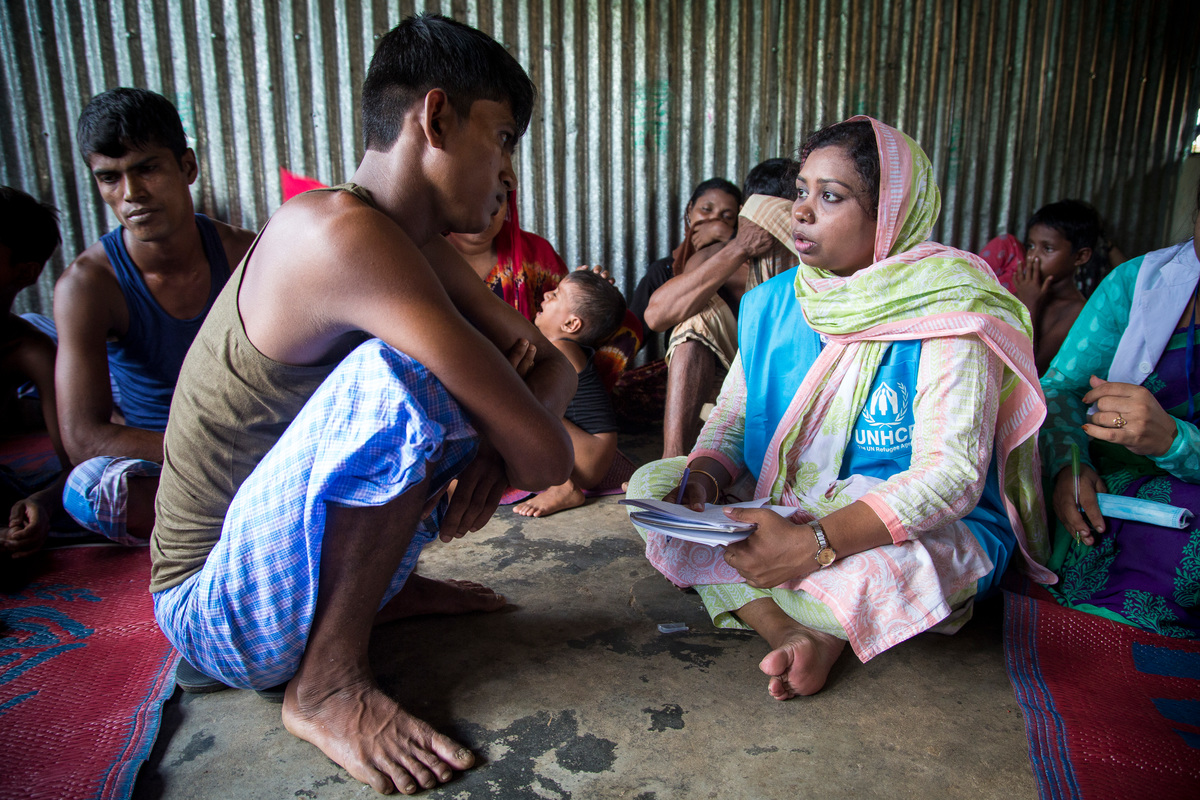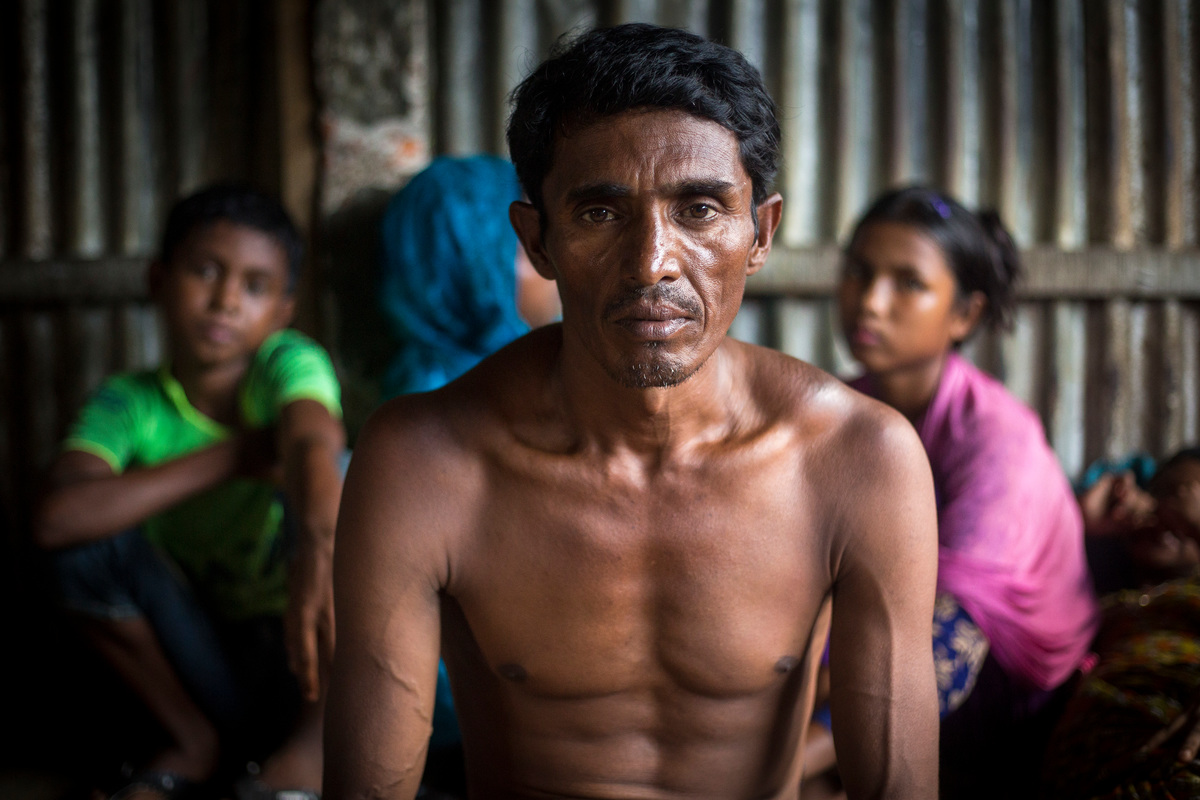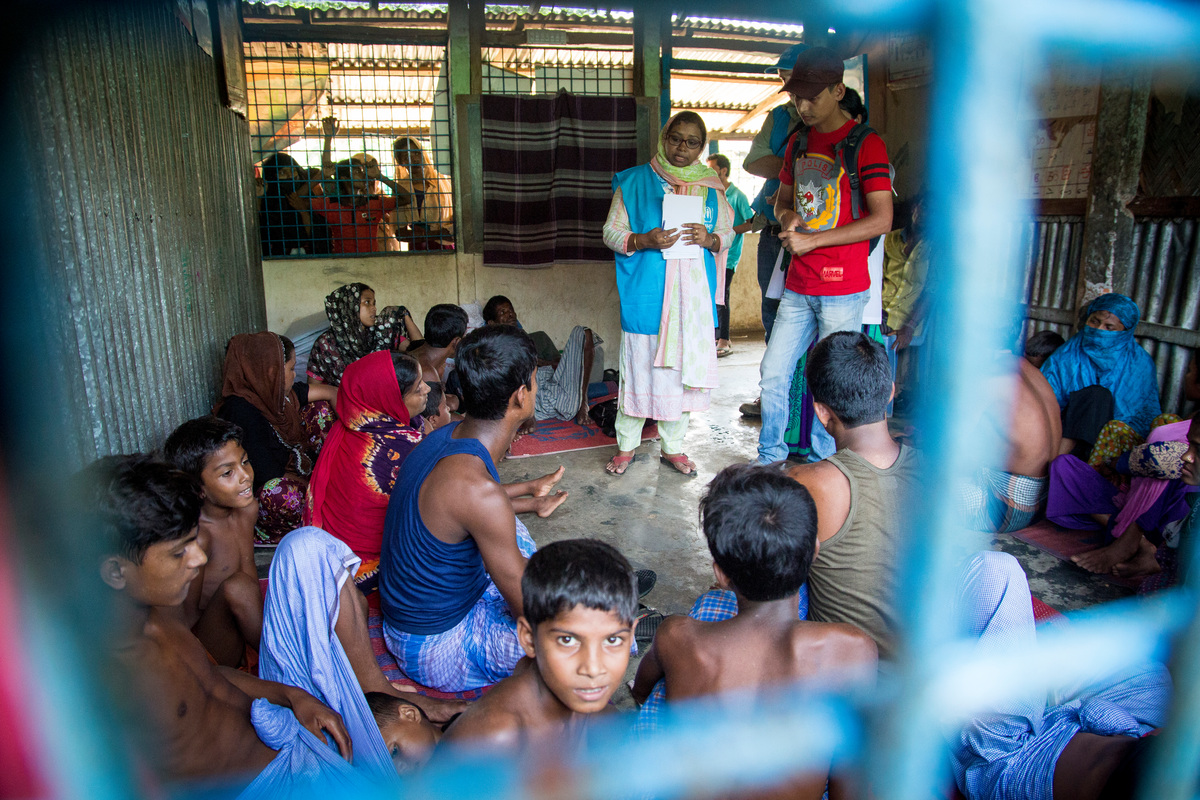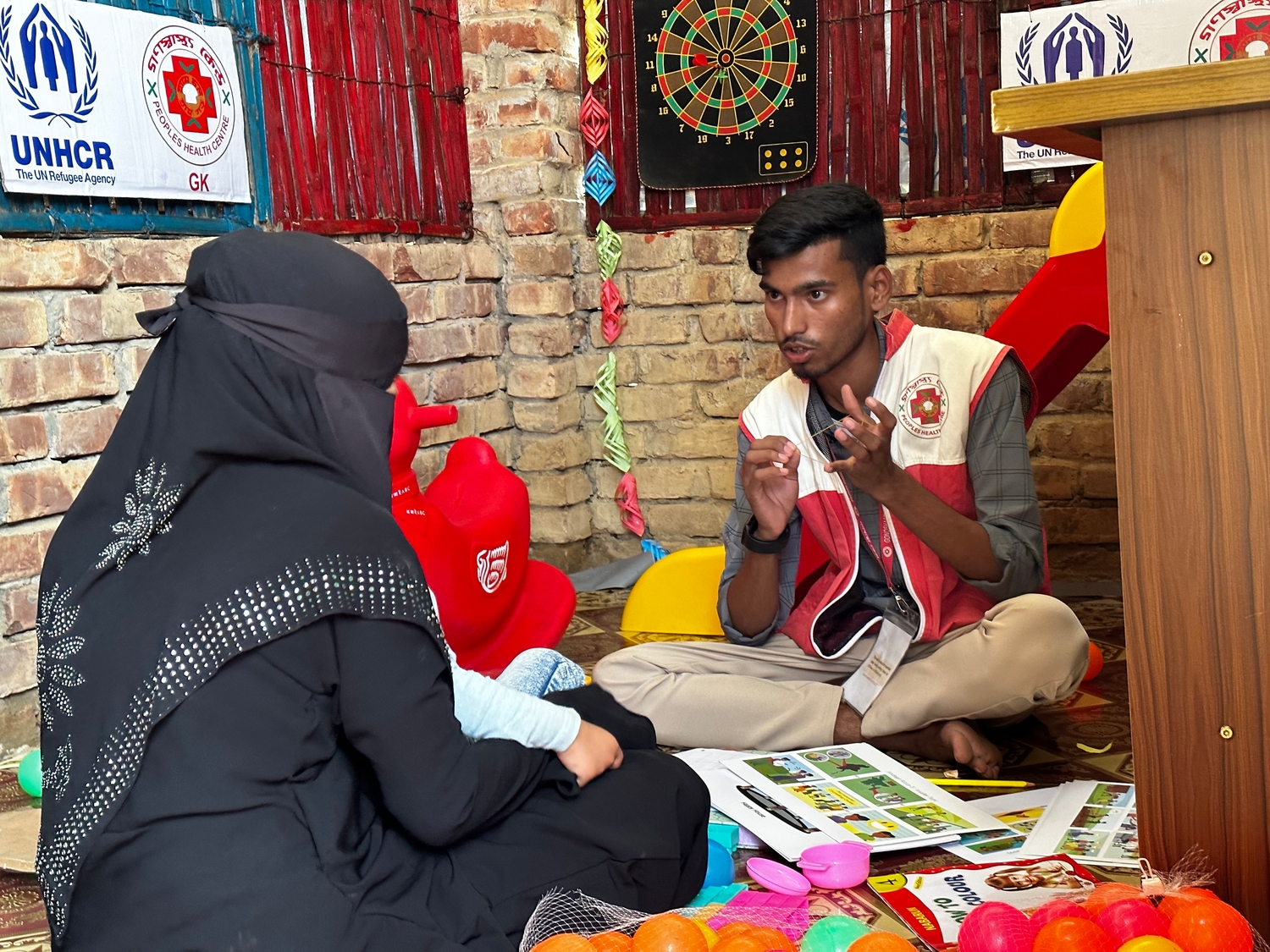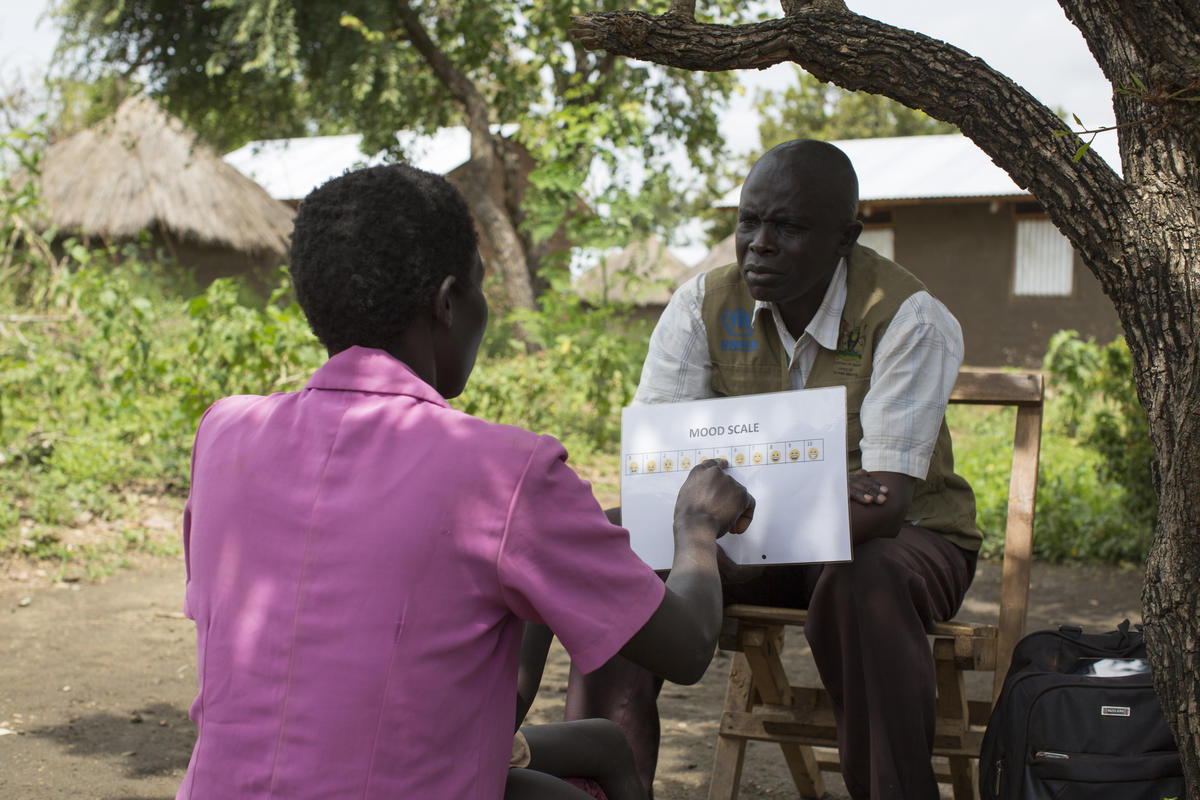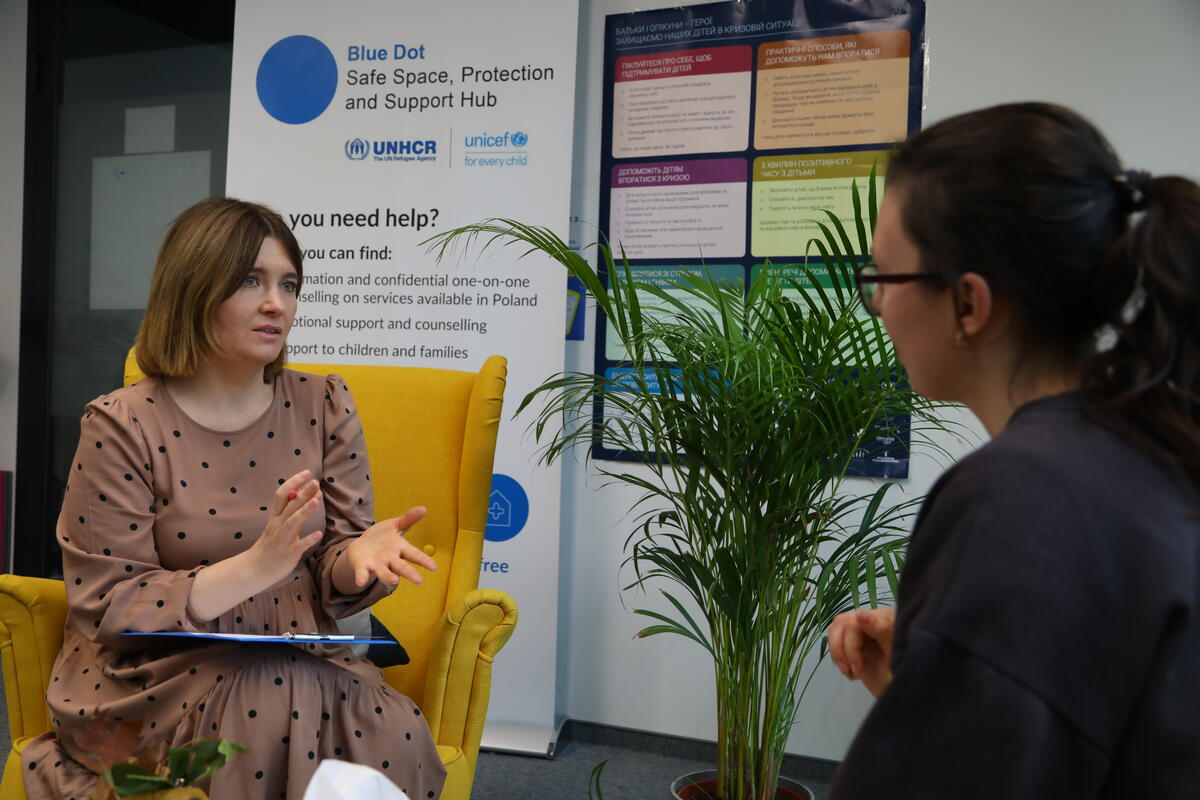Mental health first aid on the frontlines of the Rohingya crisis

Mental health first aid on the frontlines of the Rohingya crisis
When the packed fishing boat broke up in the storm, Nurus Salam was tossed into the sea holding his only son.
He held him as tight as he could but waves loosened his grip. Suddenly two-year-old Abdul was gone.
"I keep hearing him crying out 'papa, papa' when I shut my eyes," he whispers.
Nurus, 22, is among 27 survivors of a shipwreck on September 26 off the coast of Bangladesh that killed at least 23 people. Scores are still missing.
Nurus, who also lost his wife, Sanjida, 18, in the wreck, is speaking at a support session in a schoolroom at this refugee camp, led by a psychologist with UNHCR, the UN Refugee Agency. Twenty of the survivors gather in the room at the Peacock Primary School, which doubles as their temporary accommodation.
Sitting cross-legged on the floor, Rashida Begum, 23, tells a therapist, Mahmuda, how her seven-month-old daughter slipped from her grasp in the pounding surf.
This is mental-health first aid on the frontlines of the Rohingya crisis, a man-made disaster which has caused suffering on an unimaginable scale.
Sixteen-year-old Abder Rashid explains that his father was shot dead in Myanmar. His mother drowned when the boat broke up off the beach, and – as the eldest of four brothers who survived – he is the new head of the family.
“Now I have to nurture these children. There is no-one else,” he tells Mahmuda in a gentle voice. “I feel the burden when I try to sleep.”
An educational psychologist and counselor with five years’ training under her belt, Mahmuda has also studied as a psychotherapist with special training in post-traumatic stress disorder, or PTSD.
She is the only psychologist that UNHCR has at the two official government-run refugee camps in Bangladesh – Kutupalong and Nayapara – and in the vast pop-up cities of bamboo and plastic shacks beyond that house hundreds of thousands of people. There are five other psychologists working with partner organizations, but no psychiatrists.
Since the boat wreck five days earlier, she has run a group session with all 27 survivors, and one-on-one therapy with 14 of the men, women and children who made it to the beach alive.
Tragically, in ongoing violence that has uprooted more than half a million people in unthinkable circumstances, their suffering is just the tip of the iceberg.
“All the refugees have gone through many traumatic experiences,” Mahmuda says. “They have walked for three or four days, or they have come by boat … they have seen slaughter, shooting, torture, rape … they have seen everything.”
"They have seen slaughter, shooting, torture, rape.”
Speaking in a soft, calm, assured voice, she begins the second group session for the wreck survivors with a clear message of reassurance: “You are alive,” she tells them. “You are safe. You are not alone. We are with you.” They listen intently.
Mental health studies show that refugees are surprisingly resilient. Most react to displacement and losses with acute stress and grief reactions. A smaller proportion – usually no more than one in five – present mild or moderate forms of mental health problems, including moderate PTSD. A lesser number suffer serious disorders such as bipolar disorder or psychosis.
Mahmuda has extremely limited resources, not least, time. The nearest psychiatrist is in Dhaka and she is able to offer only the most basic referral to doctors at the camp who have had a crash-course in mental health. She has limited options to refer some to other health and social care networks in the camps.
Astonishingly, given the agony that the boat wreck survivors are living, and the bare-bones resources that Mahmuda has at her disposal, there are small signs that some may be finding a way forward.
Mahmuda reassures those that were rescued that they are now safe and must find the strength to carry on.

Remarkably, Rashida is starting to accept the loss of her baby. “Maybe it is our fate,” she tells Mahmuda.
“When we were in Myanmar, my child could have been killed by the army, or slaughtered by somebody else. I am giving myself that consolation. I have lost her, but I have to survive.”
Aside from the loss of his parents, Abder Rashid says he is daunted by the responsibility to care for his brothers, aged eight, nine and 12. He listens avidly as Mahmuda gives him clear information about the support available to him.
She explains that there is a child-friendly space at the camp where his brothers can draw, throw a ball, make toys and get a little bit of their childhood back. She will also look for additional support for him, among other partners at the camp.
“These people have the right to live in dignity with sound mental health, but we're very limited in our capacity."
As for Mahmuda, dealing with the mental anguish on a simply unimaginable scale, she falls back on her training and goes to work. She wonders what toll it is taking on her and whether her ability to function means that she is losing her sense of empathy.
“After I get home, I do some deep breathing and some relaxation exercises to release myself – after hearing these stories, it is very hard to be calm and quiet,” she says.
Asked what she needs to help her client group that has grown 15-fold in little over a month, she is clear. At least one psychiatrist, two child psychologists, and training for the medical staff at the camps so that they can provide at least basic mental health care for the Rohingya refugees.
“These people have the right to live in dignity with sound mental health, but we're very limited in our capacity, so it is not possible to cover this large population.”
“We are trying our best for them,” she says, with the preternatural calm and grace that almost certainly reassures those seeking help in this still unfolding catastrophe. “If there is anyone who can extend to us a helping hand we would welcome it.”
- Your support is urgently needed to help refugees in Bangladesh. Please give now.


